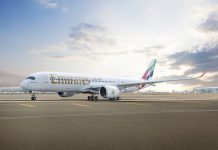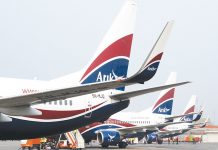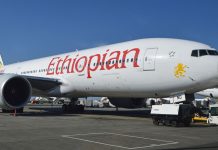The Federal Government has officially announced that it will no longer invest in establishing a national carrier, instead redirecting its efforts toward strengthening local airline operators. This was disclosed by the Minister of Aviation and Aerospace Development, Festus Keyamo, during the launch of the book “100 Years of Civil Aviation in Nigeria: History, Issues and Prospects” in Lagos.
Keyamo clarified that while Nigeria remains open to proposals from private or public entities—domestic or foreign—to establish a national airline, the government itself will not commit any financial resources to the project. “The correct story is that the FG will not invest a dime in establishing a National Carrier but is always open to proposals that truly benefit Nigeria and Nigerians,” he stated via his official X (formerly Twitter) page.
The move follows the suspension of the Nigeria Air project, which was controversially unveiled in May 2023 by former Aviation Minister Hadi Sirika, just days before the end of the Buhari administration. The initiative was later deemed fraudulent by the House of Representatives Committee on Aviation, and several individuals involved are under investigation by the EFCC over alleged contract fraud.
Keyamo emphasized that the current administration is prioritizing policy reforms to support domestic airlines, citing efforts like revised insurance regulations on leased aircraft to improve access to aircraft and reduce operational costs. These reforms aim to boost local airline competitiveness and attract investment.
“We have shifted focus to ensure growth and development for local operators through our policies,” he said, noting that air traffic staff are being trained, and revenue leakages are being plugged to improve the sector’s financial health.
He also revealed that nearly all foreign airlines operating in Nigeria now comply with the directive to source in-flight catering from local providers, a move intended to support Nigerian businesses.
Keyamo further raised concerns over the dilapidated state of the old terminal at Lagos’ Murtala Muhammed International Airport (MMIA), which has remained unchanged since 1997. He stated the terminal would be demolished and rebuilt as part of the ministry’s modernization efforts, with plans for a smart airport in the works pending presidential approval.
The author of the commemorative book, Wole Shadare, described it as a 25-chapter documentation of Nigeria’s century-long journey in civil aviation, aimed at providing valuable insights for scholars and industry professionals.
















